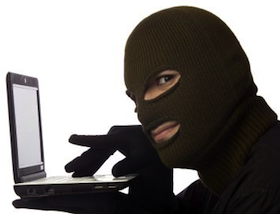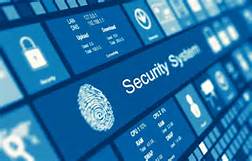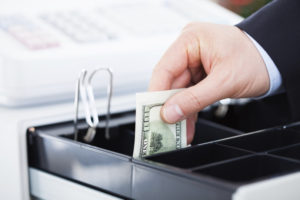Locksmithing services
Residential
Keys & Locks for Cars
Commercial
Emergency Rekeys & Lockouts
Happy customers
"Broke a key to my car. I was desperate as had an important meeting. Fortunately, guys from Midway solved this problem in less than an hour."
Kevin Garnett"Lost a key to the front door and couldn't find them anywhere. I've contacted the company and they changed all locks pretty fast."
Bruce Delaney"Thanks for fixing and changing the locks at my new apartment. Very professional service and good prices."
John MondaleComputer Security – How to Create and Protect a Strong Password.

A strong computer password to restrict access to your computer system from unauthorized access is vital to your business security. Your password is your first line of defense, and should be taken very seriously: The last thing you want is to compromise your data, your company secrets, and your clients’ confidential information. Once someone accesses your computer, they may now be able to access your bank accounts, credit cards, Social Security number and other information that you do not want others to have. A strong password must be difficult for a hacker to figure out, must be changed often, and must be kept in a safe place where no-one else may find it.
A good password must contain at least eight characters, must include UPPER CASE and lower case letters, and must contain several numbers. You should also use special characters – such as @ $ % ^ &. Many systems can handle a twelve-character password, which is that much more secure.
Never use real names, dates, English words, or anything like addresses, date of birth, kids’ names or anything that can be figured out by a hacker who might sift through your garbage for clues. If your name is Stephanie and you were born in 1980, the dumbest password you could create would be “Stephanie1980”. Any smart hacker will be able to figure that one out in minutes. Hackers have programs which contain every word in the dictionary, as well as variations on English words. All they need is time. So make it as hard for them as possible.
Here is an example of a strong, effective password that is very difficult for an intruder to hack:
Bg65R@dE&7bL
Generate a strong password like the one above. Note that this password contains at least one or more of the following:
- Upper Case Letter
- Lower Case Letter
- Numerical Character
- Special Character
Give this password only to those who need it, and make sure it isn’t left lying around where people could see it. Never stick it to the monitor or under your keyboard. If you can’t remember your password, write it down and carry it somewhere safe – like your wallet. And don’t write: “This is the password for the computer in the office”. Even if somebody finds it, they should not know what this password is for. A good trick is to write down your password backwards, making it that much harder for someone finding it to figure it out. If you lose your password (or the wallet that it’s in) change the password immediately.
Even if your password is strong and might not be able to be figured out by a hacker’s computer program, there are many other ways for someone to access your password. “Phishing” scams use an official-looking and urgent-sounding email to get your attention and try and get you to send them your password or other confidential information. These emails look as if they come from your bank, your Internet service provider, or even the IRS. They ask you to log on to a site to change a password, provide bank account information, or give your Social Security number. Once you respond, the hacker clears out the funds in your bank account before you know it. Never respond to such requests for this type of information. And inform your employees about this danger and warn them not to open or respond to any suspicious or doubtful emails. If you are not sure about the legitimacy of an email request from an outfit where you do have an account, call the bank or whatever organization seems to be represented in the request for information, and check to see if they did in fact sent you the email. Don’t take chances.
Another way people can access your password is by “shoulder surfing” – a person looks over your shoulder and watches you enter your password. This can be a real problem if you are doing work in a location other than your office – say, at your local Starbucks. Try and enter your password as quickly as you can: if possible, enter it without looking at the keyboard. Shoulder surfing can easily be done when you use a computer in a public place like Internet cafes or the library, where hackers lurk with the express intent of watching for people who might enter their passwords where they can be seen by others.
When you have finished using a computer in a public place, make sure you log off. This must always be done, even if you are using a friend’s computer in a private, relatively secure place.
And your password must be changed often. Given enough time, almost any password can be figured out. Some companies change passwords every week. At most, change it every few months. Every time you change your password, switch between the uppercase and lowercase letters and switch the positions of the numbers and the letters. Avoid creating a pattern where after a while a hacker can figure out your new password based on your old ones.
If you have to terminate (fire) an employee who has had access to one or more of your passwords, you must change these passwords immediately.
In the end, all security is dependent on awareness. Keep your eyes open, don’t be careless, and don’t try and be smart. Follow the simple rules outlined here, and always try to bear in mind that your confidential information is ALWAYS going to be at risk. The best you can do is to be alert and vigilant.
For a broader survey of password secrets, visit this site at Symantec one of the leaders in cybersecurity: http://www.securityfocus.com/infocus/1192

You may also be interested in looking into some additional computer protection systems beyond a mere password. Today, you have the option to install a computer security system which reads voice, fingerprints or even your eye. These may cost more money but are very effective.

Your Employees Are Stealing From You
Most theft against businesses is committed by employees of those businesses. Although a business may set up intricate systems of security to reduce employee theft, the most effective method for preventing employee theft is the installation of video surveillance cameras throughout the business.
After you install surveillance cameras, you will notice a marked difference in the behavior of your employees: they know they are on camera and they will change their behavior immediately. When they know they âre being videotaped, store clerks become more polite to customers, kitchen staff observe higher Health Department standards, and cashiers know that a camera is watching them every time they open the cash register. This has an immediate effect on your customer service and on your bottom line.
Video surveillance systems are now an essential element of business security. They are affordable and easy to install, and new allow you to zoom, pan and tilt your cameras from a remote location, to view your cameras from anywhere in the world via the Internet, and even to see clearly in total darkness.
Surveillance cameras should be placed everywhere your employees are throughout the business premises. Make sure that entrances and exits are well-covered, as well as hallways, common areas as well as private ones. Be sure to place good cameras over cash registers, safes, and the main computer server. Do not forget to place them in places like break-rooms and kitchens. People change their behavior when they know they are being watched. It’s like having a supervisor everywhere.
Post Warning Signs
If you intend using as evidence the footage you are recording, the law requires you to post signs that people are being recorded. “Smile, you are on camera” or “Premises under video surveillance” is sufficient. If you do not post such warning signs, you may not use the video as evidence. Some businesses prefer the anonymous route: they don’t post warning signs and use covert video for their own security purposes.

Businesses often add a second surveillance camera system to the first one. This second system is often covert, and most employees do not know about this second system. This configuration records any attempt to tamper with the main DVR system.
If you record your camera output to a remote location on a permanent basis, this will make it impossible for anyone — employee or intruder — to prevent you from recording and keeping any incriminating footage. Either way, your DVR system should be kept in a locked drawer or cabinet, keep the access password confidential, and make sure one of your cameras is placed to get a good shot of the DVR system itself.
Archive Employee Video Footage
Employee surveillance footage must be kept for an extended period of time: if a situation arises with an employee, you may need to play back something that happened months ago. Camera footage should be backed up weekly, and stored in a different location for safety. You should keep archived employee footage for at least a year. You never know when you might need it. And if you do, you’ll be glad you have it.
Business Security – Midway Lock & Safe
Business Security Requires Attention to These Details.
The majority of all business losses are caused by the companies’ employees. But the current economic environment has also led to an increase in crimes against businesses by intruders.
And there’s a new risk to all businesses which did not exist ten years ago: outside electronic intrusion. It’s more commonly called “hacking”. The sensitive data stored on your computer system is now every bit as vulnerable as your physical business. Business owners today must be on constantly on the lookout for theft, pilferage, burglary or property damage. And must now also be constantly on the lookout for evidence of hacking.
Regard your business as a fort, and ask yourself, “Is my fort secure?”
Here is a checklist of items to be covered before you can say you have adequate protection for your business.
Doors and Windows Must be Lockable and Secure
The doors, windows and the locks on those doors and windows are the first point of access to an intruder or anyone else after business hours.
Start with the doors: this is the first obstacle any burglar or intruder would encounter. Is this a sturdy door? Could someone kick it in easily? Is there a good lock on the door? Ask any locksmith: a burglar needs only one thing — time — to open any lock. Front and rear access doors should be fitted with more than one lock, and should have a deadbolt lockable only from the inside.
Windows should be checked in the same way. Every window should be lockable from the inside, and should be locked when the premises is vacant. If a window breaks, even a small one, get it fixed immediately. If a lock on a window does not adequately secure the window, replace the lock immediately.
Check every lock in your business and make sure they work and do what they are supposed to do.
Remember that the doors inside the premises also must be secure and should always be locked at night. Confuse the intruder: lock the broom-closet, not just the computer room: let the intruder spend valuable time unlocking a door only to find there are cleaning materials inside. Every interior office should be locked at night.
An Alarm System Must Be In Place
An alarm system is now an essential part of business security. Choose a reputable alarm company — ask your neighbors – – and make sure they provide either armed response or a direct line to the police. Provide the alarm company and the police with your emergency phone number, the emergency phone number of any manager or employee who lives close by the business premises, and a list of all personnel authorized to be on the premises after hours. Install an alarm system that allows you to allocate a separate passcode for each employee. That way, if there is a problem with unauthorized access, you should know who is responsible. You and/or a trusted senior employee should have a list of all the passcodes for all employees. And remember – the moment you fire/terminate an employee, change his/her alarm passcode.
Closed Circuit Camera Shows You Everything
Now look at the daytime access to your business. Can anybody walk in during the day? These days it is becoming less and less advisable to allow public access to a business without first being identified. At the very least, install a simple microphone intercom system so a caller may buzz you and you ask them to identify themselves before deciding whether to admit them. Installing a closed-circuit TV camera system s the next level of security: see who it is before letting them in. Adding a door strike so you then “buzz” people in will add another level of security.
Controlled Access
There are major advances in controlled-access today that allow a fairly high level of security in premises access. Authorized personnel may be issued with a passcode, a magnetic strip card reader, or even a fingerprint or eye-read entry system.
Surveillance Cameras With Remote Monitoring
Installing surveillance cameras is another essential part of business security. Your business premises must be covered by cameras front, back, side and everywhere inside. Don’t cut corners here: buy cameras that have the capability to see in very low light or even in total darkness, and that allow you to pan, tilt and zoom remotely. Connect the entire camera system to the Internet so you or your security personnel may view the output from your cameras anywhere in the world. Business owners are using DVR to cut costs: one security officer can now monitor several areas or even multiple locations. Install professional equipment that will do the job.
Safes & Fireproof Storage
Many businesses now rely on a safe to store their most valuable assets. This can be data storage disks, sensitive documents, cash and other valuables. It’s probably a good idea to keep your customers’ private/personal confidential information in a good safe. Make a copy of the key to your safe, and give it to someone you trust, preferably off-premises. If you lose your safe key, it will always be safe (excuse the pun) with your trusted friend/neighbor.
If you do not want to get into the expense of a safe, then you should at least have a fire-resistant storage cabinet for valuable documents or data. These are not totally fire-proof, and will probably be destroyed in a very serious fire. But they are still better than leaving them in an office drawer in case of fire or flood or earthquake.
Back Up All Data and Surveillance Footage
Make sure your DVR system has a battery backup system in case of power outage. If possible, record offsite: that way you will still have footage even in case of a serious disaster. If you know your neighbors, ask them to install a camera on their premises that points at your business. Offer to install one on your premises that points back at theirs. This not only makes for good neighbors but is another backup in case anything goes wrong with your system or the electric power on your premises.
Computer Security
This can be the weakest link in your security chain. Your computer contains personal data and also sensitive information about your clients/customers. Bank account and credit card details could be seriously compromised in the wrong hands. Develop a strong computer password — at least 12 characters, including upper and lower case letters, numbers and special characters. Store the password in a secure place, give it only to personnel who need it, and change it often. If you write down passwords because you have difficulty remembering them, don’t write words like “computer password” next to the password. And lock the passwords in a secure drawer that only you have the key for. Instruct personnel to never give out the password to anyone who requests it by phone or mail. Warn your personnel against opening doubtful emails or downloading programs, attachments or apps onto your network. Make sure your computer network is adequately protected so your employees do not accidentally compromise your network. And you will need additional protection if you allow your employees to use your network for personal use. An innocent employee posting at work to/from his Ebay account can seriously compromise your entire business.
If an employee leaves – and especially if he/she is terminated, you must immediately change any computer passwords to which the employee had access.
Storage and Shredding of Expired Sensitive Documents.
Store your paper records as securely as you do your digital records. Shred all paper to confetti before tossing: dumpster diving is still a major way to obtain sensitive information about you without your knowledge. Backup all computer data regularly and store a copy offsite.
Vigilance Is The key
Finally, all the equipment and personnel in the world won’t protect you if you aren’t vigilant. Keep your eyes open, and ensure that all personnel are aware of security procedures and are always alert. Nothing takes the place of an alert, watchful team, supervised by an alert, watchful management.


